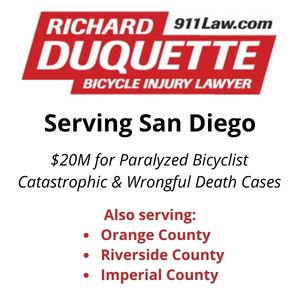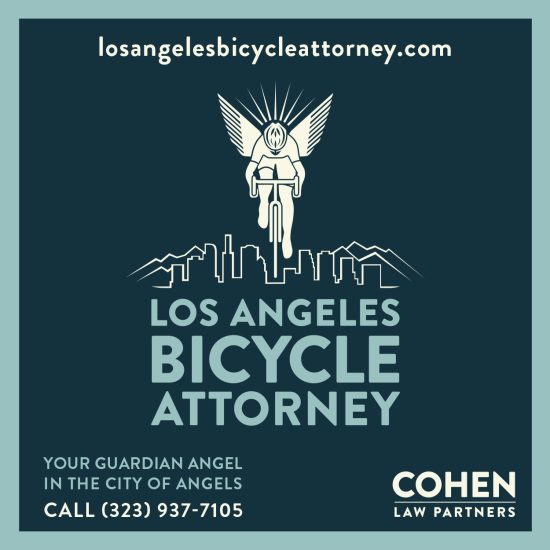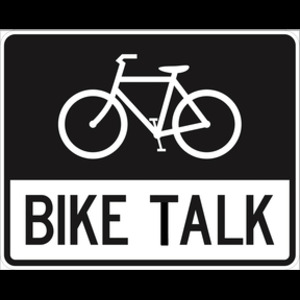Call it a case of miscommunication.
Last week’s failure to ticket the driver who right hooked Melanie Freeland as she biked to work — despite being witnessed by two police officers — quickly went from bad to worse.
As Freeland questioned why the driver wasn’t ticketed for failing to signal and yield the right-of-way as required by law, it quickly devolved into a desk officer arguing with her and refusing to put through her call to the bike liaison for the Central Traffic Division.
And led to an explanation from the Watch Commander on duty at the time of the collision that made it appear that most police officers are prohibited from writing traffic tickets, even if they witness the incident.
Or maybe not.
That bike liaison in question, LAPD Central Traffic Division’s Sgt. Laszlo Sandor, went to great lengths to clarify matters at last night’s regularly scheduled bike liaison meeting, which evolved from the department’s long-standing bike task force.
First off, the officers who witnessed the collision could have written a ticket on the spot. The reason they didn’t wasn’t that they didn’t have specific training in traffic law, as Freeland had understood from the Watch Commander’s explanation. It was that they were due in court, and had to hand the case off to someone else to avoid the wrath of an angry judge.
Or worse, having their case dismissed.
Secondly, Freeland reported that the Watch Commander had described a Catch 22 that would seem to prevent most patrol officers from writing a ticket in virtually any situation.
She stated that in order for a traffic citation to be issued two criteria must be met. An LAPD officer must witness the incident and be trained in traffic laws (taken the special course in traffic). Because the [traffic officer] didn’t witness the incident it did not meet the two criteria. Secondly, the officer who did witness the incident is not trained in traffic laws, so again it does not meet the criteria.
In other words, as she understood it, in order to issue a ticket at the scene, an officer must 1) actually witness the infraction, and 2) have specialized training in traffic investigations.
Which counts out the overwhelming majority of officers on the street.
Well, almost.
As Sgt. Sandor explained, there are two ways a driver — or a bike rider or pedestrian, for that matter — can be held accountable for an infraction.
The first is the one we’re all familiar with.
Someone commits an infraction, like running a red light, for instance. An officer sees it, fires up the lights and sirens, and tickets the violator on the spot.
Or in this case, can write a ticket after actually witnessing a collision. Which these officers could have done, but didn’t, for the reason explained above.
The second way is what the Watch Commander evidently tried, and failed, to explain. A driver can be ticketed after the fact if the investigating officer can conclusively determine what actually happened based on witness statements and the evidence at the scene.
But in order to do that, the officer must have specialized training in traffic investigations.
So any officer can write a ticket for any infraction they witness. Or an officer with specialized traffic investigation training can write a ticket or make an arrest after the fact, based on the totality of evidence.
In addition, there are two ways a driver can be held accountable for an infraction.
Again, he or she can be ticketed or arrested, depending on the severity of the infraction. Or the investigating officer can find the driver at fault in the traffic report, in which case the driver won’t face a fine or jail time, but will be charged points against his or her license by the DMV.
That appears to be what happened in Freeland’s case.
So justice was, apparently, won, despite a full week’s worth of aggravation and confusion.
The officers at the meeting suggested that, in some ways, it’s better to have the driver found at fault and have points charged by the DMV, since, unlike a ticket, it can’t be fought in court or dismissed if the officer is unable to attend the hearing.
Although if the driver is convicted, he will still have points charged against his or her license, as well as face additional penalties from the court.
As for the argument with the desk officer, Sgt. Sandor suggested that the officer was actually trying to help, since he — Sandor — was out of the office for several days.
But in the end, we all agreed that it would have been better to simply send the call to his voice mail, rather than appear to screen the bike liaison’s calls.
On the other hand, all of the department’s bike liaisons at the meeting agreed that email was the best way to contact them, rather than calling. Email leaves a written record of the conversation that they can refer to later. And they receive emails on work computers as well as on their personal devices, regardless of whether they are in the office.
And one more thing.
This morning I received an email from Melanie Freeland, who reported that she was back on her bike and once again riding to work, exactly one week after she was hit by the car.
Now that’s good news.
………
Thanks to Sgt. Sandor for looking into the matter and clarifying a very confusing situation. And thanks to the Los Angeles County Bicycle Coalition’s Colin Bogart, who worked with the LAPD and city officials to assist Freeland in this case.
The LACBC doesn’t often trumpet its victories or the work it does to help individual bike riders — perhaps to its detriment.
But as in the case above, I’ve often witnessed their staff members fighting behind the scenes for the rights of bike riders, whether collectively or on an individual basis. And whether or not they’re members of the coalition.
It’s an organization I’m proud to support and be a part of.
Meanwhile, writing on LA Streetsblog, an LA attorney offers advice on what to do if the police fail to adequately respond to a collision.





